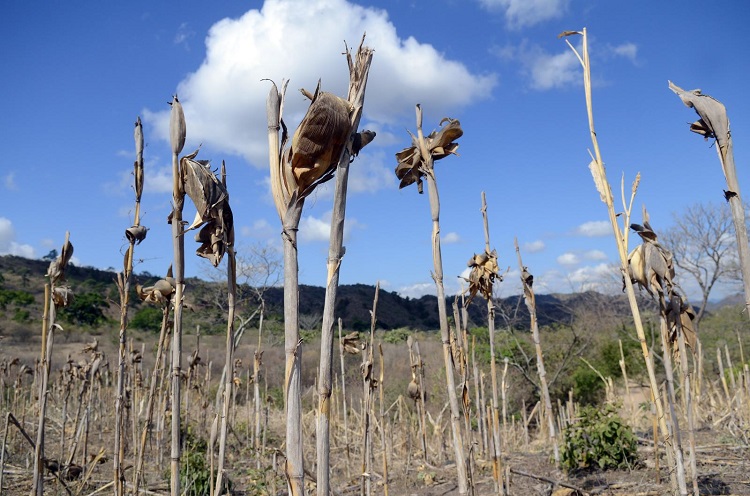How will food security be further endangered by climate change? How do current global systems of producing and distributing food contribute to climate change through greenhouse gas emissions? How is land degradation, including desertification, exacerbating and exacerbated by climate change? These questions are addressed in the Special Report on Climate Change and Land (SRCCL), released in 2019 by the Intergovernmental Panel on Climate Change (IPCC), the UN body for assessing the science related to climate change.
This landmark report assesses a huge range of literature on the interactions between climate change, land degradation, and food insecurity. Importantly, IPCC assessments such as this provide governments with scientific information  that they can use to develop policies to tackle climate change.
that they can use to develop policies to tackle climate change.
NRI’s John Morton, Professor of Development Anthropology with expertise on climate change and agriculture, was one of 12 Lead Authors of the Report’s final chapter entitled, ‘Risk management and decision making in relation to sustainable development’. This chapter translates findings from earlier chapters into key risks to land-based systems and aspects of food security, identifies possible policy responses to such risks at various scales, and considers the implications of risks and responses for decision-making processes and governance.
The chapter highlights broader aspects of decision making and governance, such as the participation of communities, the inclusion of women, respect for indigenous and local knowledge, and land tenure policies that are based on understanding of how land is actually owned and accessed in developing countries. Professor Morton notes how taking these aspects into account can contribute both to managing the risks to livelihoods and food security from climate change and land degradation, and to reducing the extent to which food production systems and other human land-uses contribute to greenhouse gas emissions.
Professor Morton also leads NRI’s Development Programme on ‘Climate Change, Agriculture and Natural Resources,’ one of the focus areas of our Food and Nutrition Security Initiative (FaNSI) which aims to expand research capacity on climate change, food loss and waste, sustainable agricultural intensification and food systems for nutrition.
To find out more about:
The SRCCL Summary for Policymakers
SRCCL Chapter 7 ‘Risk Management and Decision Making in Relation to Sustainable Development (Professor Morton was a Lead Author on smallholder and subsistence agriculture within the chapter on Food, Forests and Fibre of the Fourth Assessment Report of the IPCC and as such he was recognised as contributing to the award of the 2007 Nobel Peace Prize to the IPCC. He subsequently served as Coordinating Lead Author on Rural Areas for the Fifth Assessment Report of 2014, before serving again as Lead Author on the Report highlighted above.)

